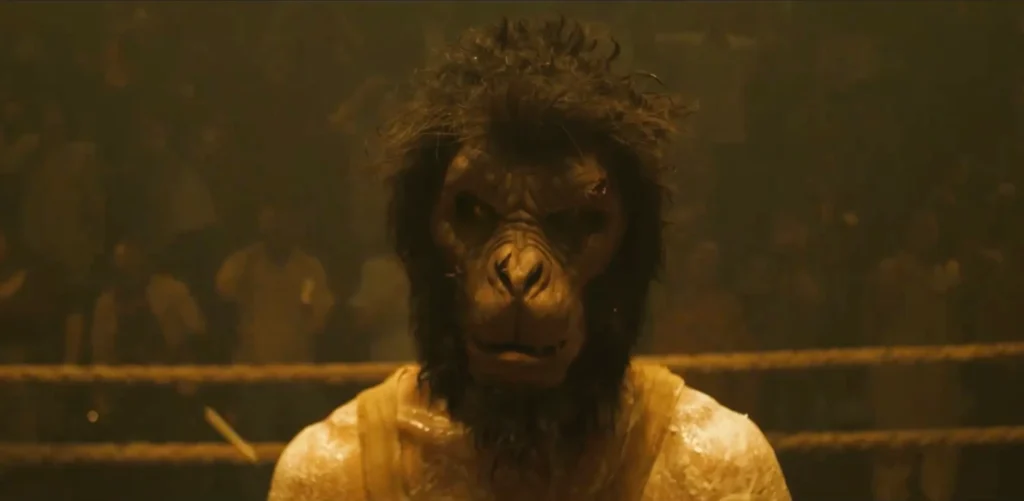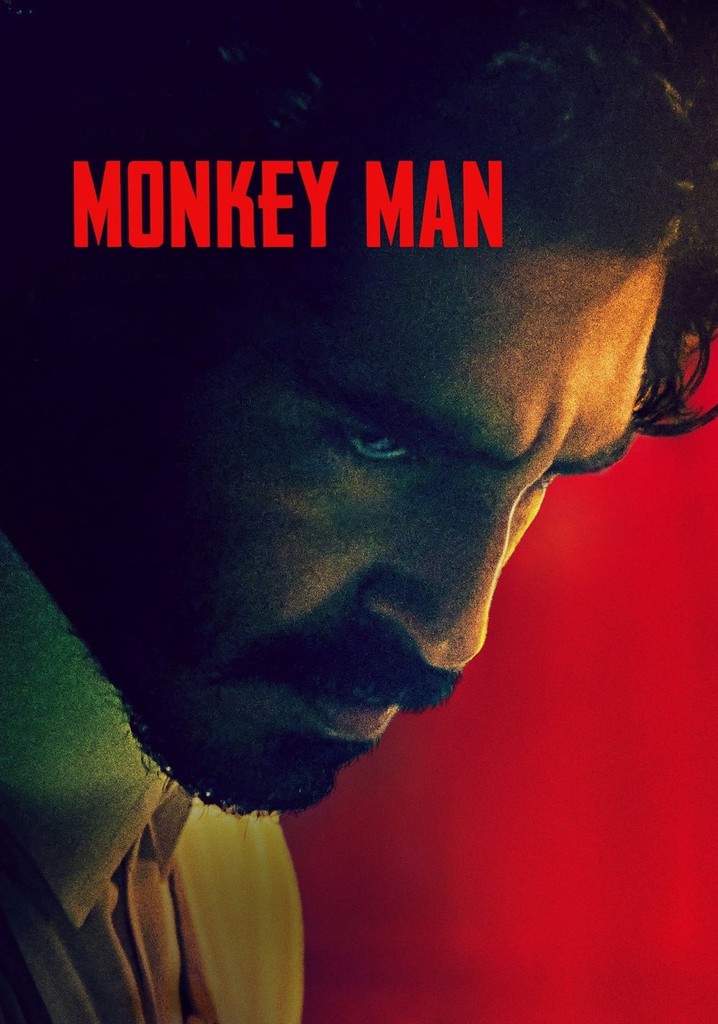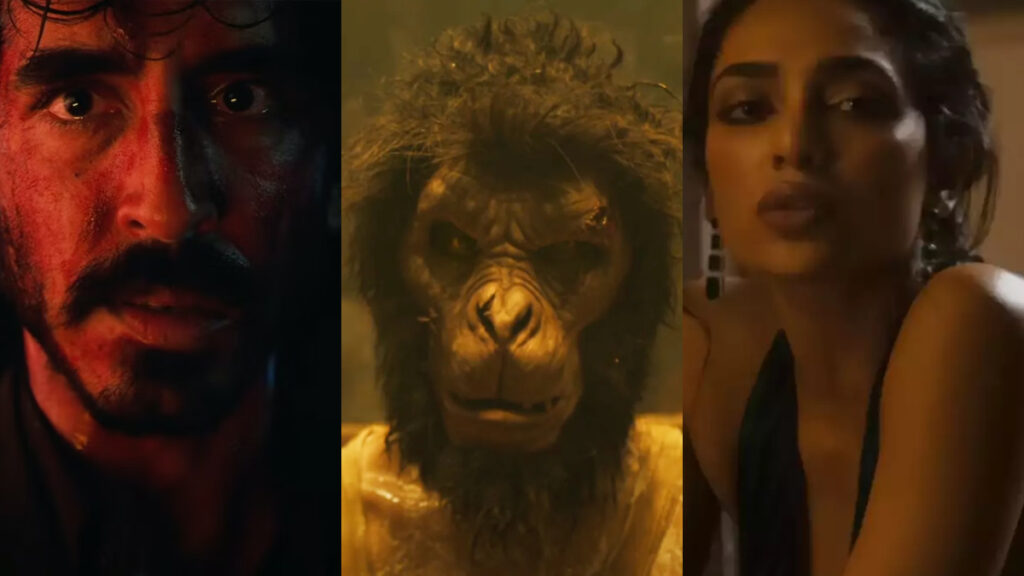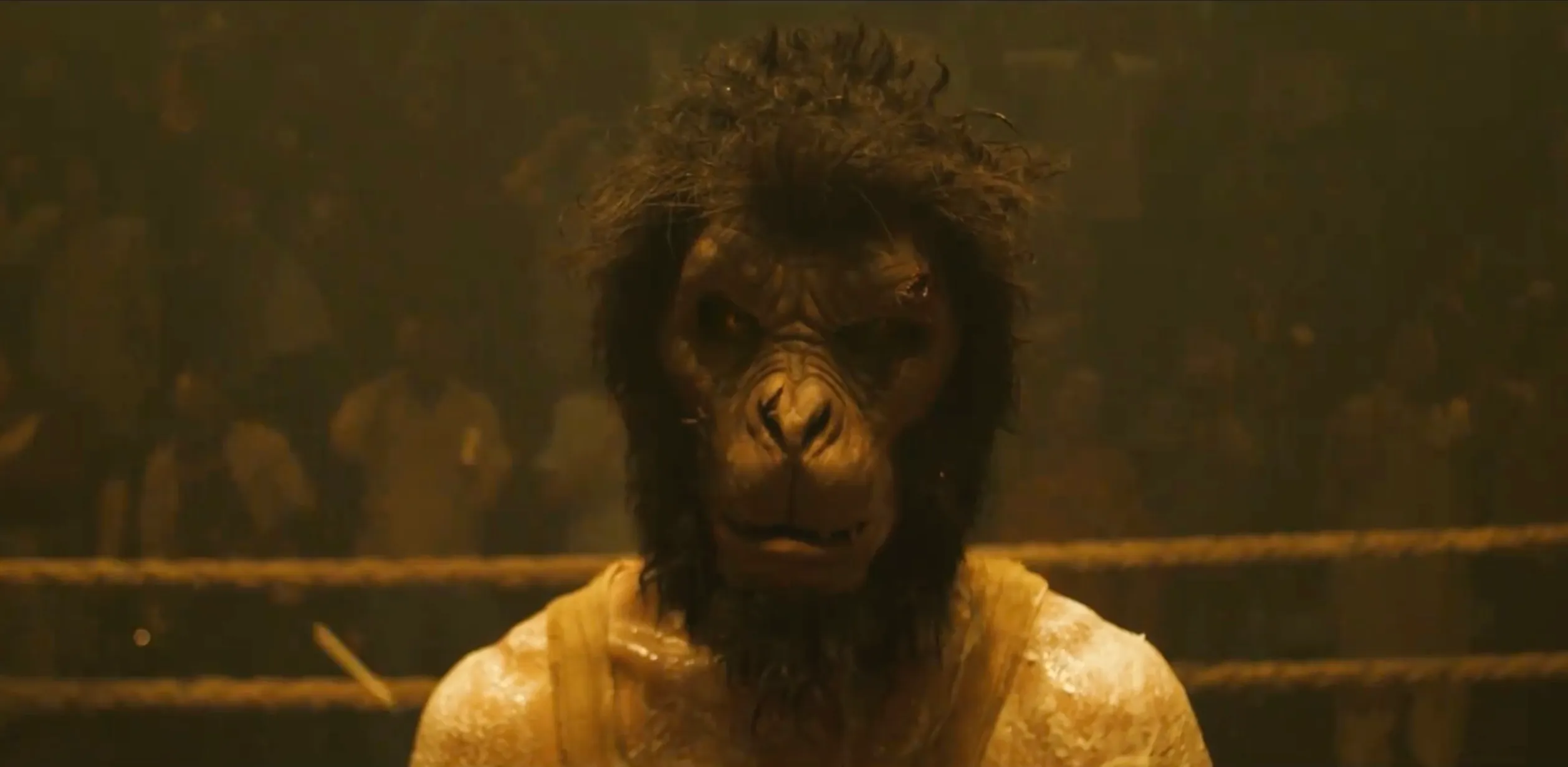“Monkey Man” is a fiery testament to a filmmaker pouring every ounce of passion and daring into what might be their only shot at the helm. Dev Patel, known for his dynamic performances, doesn’t just light a spark with his directorial debut; he ignites an entire powder keg. The film crackles with intensity, packing more visual, emotional, and thematic punch into single moments than many others in its genre manage in their entirety. It’s not just ambitious—it’s audacious. Patel seems determined to cram every idea, every message he wants to convey as a filmmaker into a tight two-hour window. There’s no time for subtlety here; every scene blazes with urgency. In this debut (and possibly farewell) effort, Patel doesn’t just swing for the fences; he swings for the bleachers, delivering a film that demands attention and leaves an indelible mark.

It’s hard not to admire Patel’s ambition with his directorial debut, especially considering the risky territory he’s ventured into. Picture this: “Monkey Man,” an uncompromising R-rated action thriller, unfolds against the backdrop of India, boasting a predominantly Indian cast. The storyline delves into the harsh realities of income inequality and poverty, themes that resonate deeply in today’s world. And at the forefront, we have Patel himself, a talented actor whose star power might not be as instant as some of Hollywood’s heavyweights, particularly as a non-white lead. This combination of factors makes “Monkey Man” far from a safe bet in the cutthroat world of cinema. Yet, against the odds, Patel takes the plunge, delivering a film that’s as bold as it is ambitious.
“Monkey Man” doesn’t just want to make a statement; it needs to. It’s a film that demands to be heard, seen, and felt on multiple levels. Its very existence is a testament to Patel’s determination to push boundaries and challenge conventions. But therein lies the paradox: in its relentless pursuit of greatness, “Monkey Man” risks spreading itself too thin. By attempting to tackle every conceivable aspect of its narrative and themes, it runs the risk of losing focus and coherence.
Yet, despite its potential pitfalls, “Monkey Man” stands as a testament to Patel’s unwavering commitment to storytelling. It’s a cinematic endeavor that defies expectations and refuses to play it safe. And while it may not be flawless, its sheer audacity commands respect. In the end, whether “Monkey Man” soars or stumbles, one thing is certain: it’s a journey worth taking.

In “Monkey Man,” Dev Patel doesn’t just dip his toes into the action genre—he dives in headfirst, ready to make a splash. Drawing on influences from martial arts legends like Bruce Lee to the adrenaline-fueled thrills of modern action blockbusters like “John Wick,” Patel’s directorial debut promises a rough-and-tumble ride like no other. And from what the trailer hints at, it’s clear he’s aiming for the top tier.
But amidst the bone-crunching fights and high-octane chases lies a surprisingly simple yet compelling plot. Patel pulls double duty here, not only as the director but also as the film’s protagonist. He embodies a young man driven by a burning desire for revenge, navigating the grimy streets of India’s underbelly in search of justice. Armed not just with weapons, but with a fierce determination to right the wrongs inflicted upon him and his nation, Patel’s character becomes a symbol of resistance against the corrupt forces that hold sway over society.
In “Monkey Man,” every punch thrown and bullet fired is more than just action—it’s a statement. It’s a gritty portrayal of a society plagued by corruption and inequality, where the lines between good and evil blur and justice comes at a high price. Patel’s film isn’t just about entertainment; it’s a reflection of the harsh realities faced by many, wrapped in a visceral, pulse-pounding package that leaves audiences breathless. With “Monkey Man,” Patel isn’t just aiming to make a mark in the action genre; he’s setting out to redefine it.

The first half of the film unfolds like a gritty reinterpretation of “The Count of Monte Cristo,” meticulously crafting a complex revenge plot that captivates at every turn. When the action erupts, it’s not the slick choreography of a “John Wick” flick but rather a raw, savage ballet reminiscent of “The Raid” with a Coen brothers twist. Our protagonist isn’t a flawless avenger but a flawed, vulnerable figure, and Patel delights in subverting both character and audience expectations.
As the plan spirals out of control, the frantic scramble to salvage it mirrors the intensity of the best South Korean revenge thrillers. Every character is fallible, every move fraught with peril. Bones shatter, flesh tears—there’s nothing glamorous about survival in this brutal world.
Patel himself shines as an action hero, embodying a scrappy fighter who refuses to stay down. He’s not suave; he’s desperate, enraged, willing to do whatever it takes to endure. It’s his imperfections that make him compellingly real, and Patel’s direction mirrors this authenticity. His frenetic, scrappy style of filming captures the chaos and desperation of the characters’ struggles. While he may lack the polish of Hollywood’s action auteurs like Stahelski or Evans, it feels deliberate. This isn’t a glossy action flick; it’s rough, raw, and unapologetically visceral, just like its characters.

Once the dust settles from the flurry of fists, Patel serves up a cinematic feast in “Monkey Man,” though it may be a bit too packed for its own good at times. Revenge here isn’t just a main course; it’s accompanied by a buffet of political commentary, neon-drenched debauchery, and slapstick comedy. Subtlety takes a backseat as metaphors are laid out in bold strokes, ensuring even the folks in the cheap seats won’t miss the message. There’s an unmistakable righteous fury driving it all—a primal scream against a world where the rich thrive while the marginalized struggle to survive.
“Monkey Man” transcends mere personal vendettas; it’s a cathartic battle cry for anyone who’s felt crushed by a system rigged against them. It’s heady material for an action flick, but Patel seems wary of trusting his audience to connect the dots. Instead, he opts for a kitchen sink approach, throwing everything in and hoping it sticks. It’s messy, sure, but some might argue that the chaotic landscape depicted in the film demands nothing less.
The gaping chasm between the opulent lifestyles of the villains and the crushing poverty endured by their victims feels uncomfortably close to reality, almost verging on the absurd. Perhaps Patel’s decision to lay it all bare is justified, but one can’t help but wish for a more refined execution, a tighter package of ideas.

“Monkey Man” boldly demands its audience engage in meaningful discourse—a testament to Patel’s achievement of creating an action film with substance. But before delving into those weighty discussions, it serves up a feast of brutal fistfights.
This film embodies a mood unlike any other—a gritty blend of nastiness and slickness, reveling in its deliberate roughness while offering moments of introspection amidst the chaos. With its myriad loose ends and simmering fury, “Monkey Man” may not provide a precise portrayal of modern India, but it certainly pulses with tension.
It’s not just about eating the rich; it’s about obliterating them with whatever’s at hand—an action movie for both the socially conscious and those simply seeking a thrilling ride. And at the center of it all is Dev Patel, delivering a performance that’s as captivating as it is ferocious.
While the film occasionally struggles under the weight of its ambition, the highs it achieves are truly extraordinary. Patel’s debut as a director exudes a palpable energy, hinting at even greater things to come. “Monkey Man” may not be flawless, but it’s undeniably a good time at the movies—and occasionally, it’s a great one.
Film Rating: 8 out of 10

